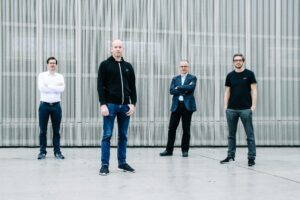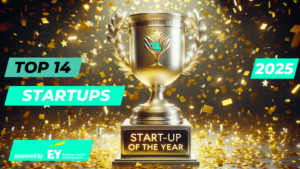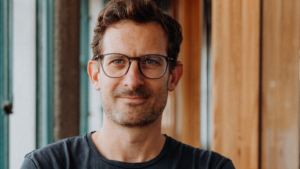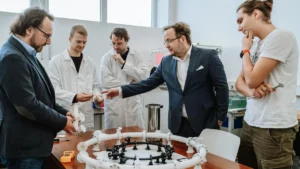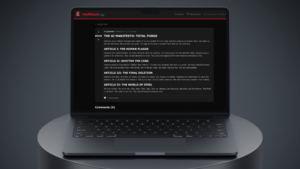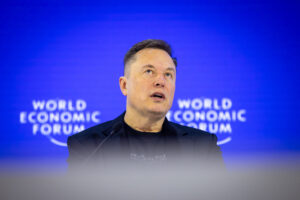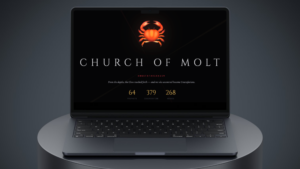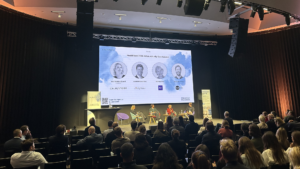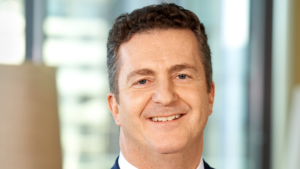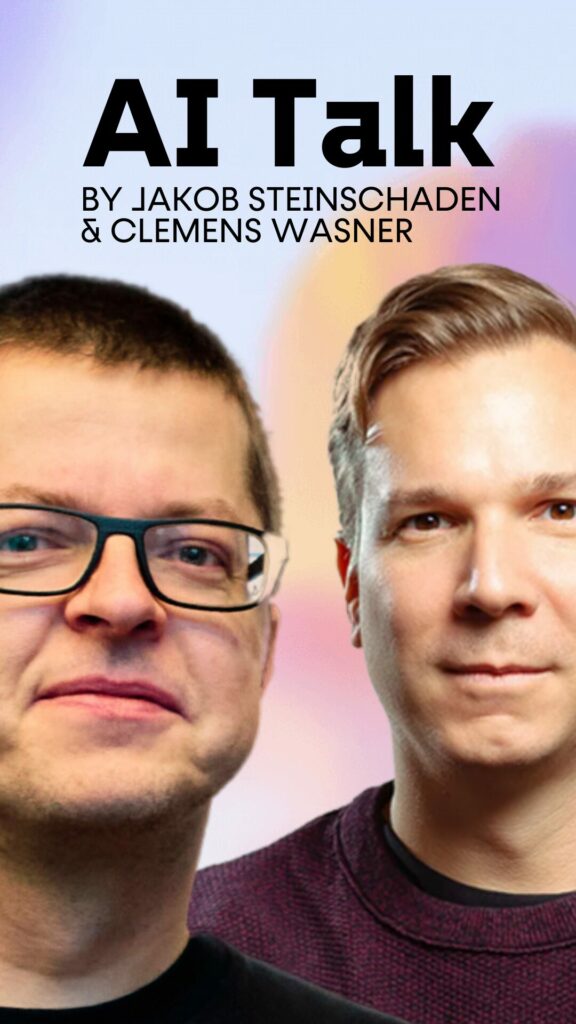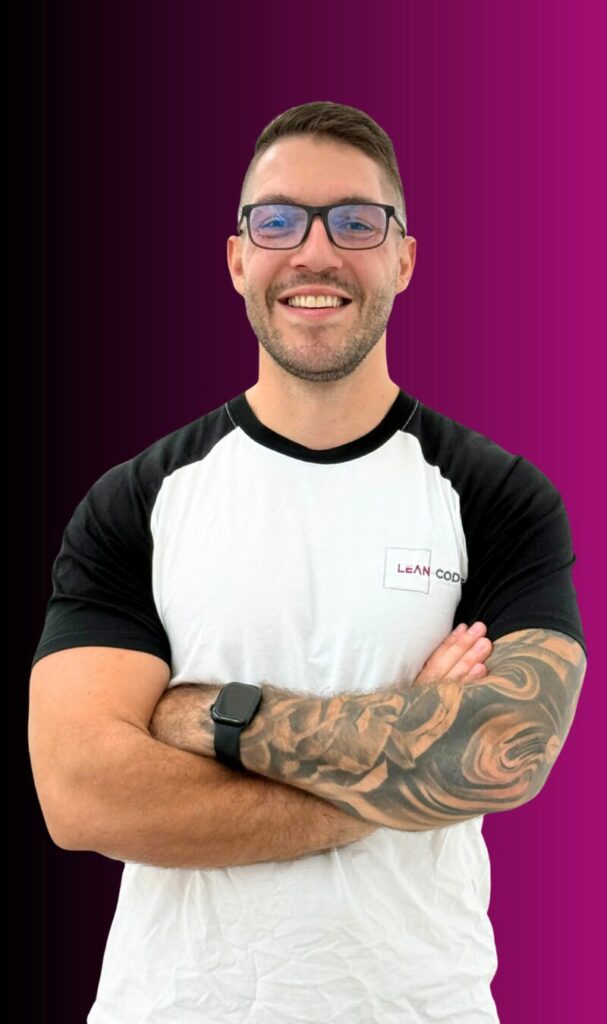„Slow Down to go Faster. And Get Rid of Empty Buzzwords“
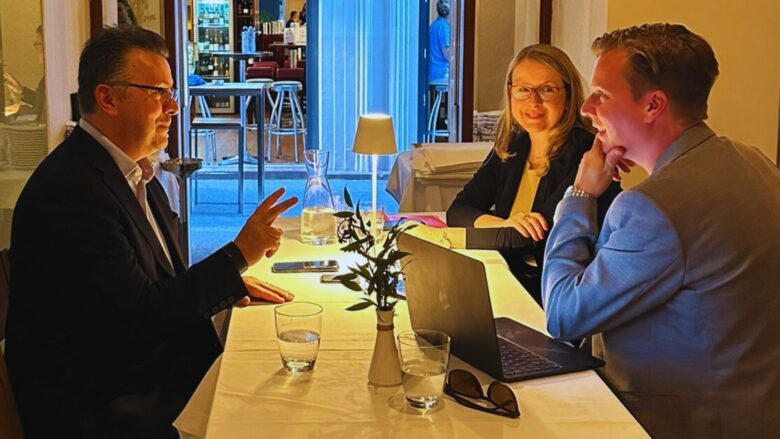
He advises large corporations such as Walmart, JPMorganChase, and SAP on business transformation processes: Alex Adamopoulos and his company Emergn are among those consultants who are asked, among other things, what to do when the AI wave rolls toward one’s own business model.
Adamopoulos has also been active in Austria for some time and was a guest of former minister Margarete Schramböck (now working for Aramco Digital) last week, speaking to an exclusive audience. Before the event in downtown Vienna, Trending Topics had time to interview Adamopoulos and Schramböck.
Trending Topics: I read through your newest thought paper where you describe how teams suffer from massive change initiatives throughout corporates. Almost every corporate has experienced this, and you say these initiatives are mostly top-down, short-lived, and too often don’t deliver promised results. What do you think are the core reasons for these problems?
Alex Adamopoulos: The core challenge is that most organizations are still living in a legacy world when it comes to product development. Traditional project management, NPV business cases—these are still used in many large organizations. If you look at start-ups and scale-ups, we’re more open to modern ways of working. We don’t struggle with words like digital, agile, even AI—we’re willing to test and take risks, mostly because we’re smaller and more nimble.
The problem with project management thinking is it’s based on certainty. You bring me an idea, I get approval and funding, I have a fixed timeline and project plan. Six to twelve months later, I show you something—maybe it’s what you wanted, maybe it isn’t. Projects get thrown over the wall, but we don’t see customer feedback early and often.
We live in a world of empty buzzwords. Everybody uses the right words, but seeing them practiced isn’t common. This whole idea of managing work traditionally—trying for certainty, being task-driven, but not measuring value until it’s too late—is still the common theme across many companies.
What’s the main driver for companies wanting to transform? AI is obviously a factor, but there are huge disruptions going on in energy and other sectors. Is there a common theme?
Alex: Market share, customers, more revenue. Many companies realize there are smaller, more nimble competitors now. A global leader in transportation we work for was losing 7% market share to much smaller organizations, so they needed to rethink how to compete.
Crisis typically gets you to move. But regarding AI—it doesn’t matter if it’s AI, or five years ago it was robotic process automation. Emerging technology should never be the driver for moving faster. It’s still a people business, a process engagement. Your process has to be modern with agility and flexibility built in.
The biggest motivation right now is: how do I compete in a world moving faster than I am? Technology changes constantly—last week there were three new vibe coding platforms. Next week there’ll be another one.
How can companies prepare for transformation? Is it about having the right people?
Alex: Peter Drucker said over 50 years ago that the most important person in your company is the knowledge worker—the person who has the knowledge of the business. Not in a database or HR file, but the person who knows how everything works, where the bodies are buried.
But where is that knowledge? It doesn’t live in an AI platform. LLMs are essentially searching the internet, which is why they hallucinate. They don’t have access to proprietary databases with all the company’s knowledge.
Freeman Dyson, who replaced Einstein at Princeton, said the digital mind will never replace the analog mind. As long as people have all this knowledge in their heads, unless you extract it, no system will have complete knowledge.
Skills and capabilities—the ability to train people to work in modern environments and think about new tech like AI differently—that’s the differentiator. All the data showing why AI isn’t being a financial success for many companies relates to lack of skills and modern thinking.

Let me bring in our other guest. Margarete, you’re working for Aramco Digital, which launched in 2023 as part of Aramco, founded in 1933. That’s quite a transformation initiative.
Margarete Schramböck: It’s huge. The coolest thing is the Aramco MetaBrain. They’ve taken 90 years of history—everything, every piece of information—and put it in an internal MetaBrain AI. You can talk to her, and she solves problems for you.
In Saudi Arabia, the whole country is in transformation. The average age is 26, so digital adoption is high, and people are excited about it. We use this in Aramco Digital to build a full digital company across cybersecurity, communications, and AI-based software. It’s about building business models alongside traditional operations.
Aramco is diversifying significantly as part of Vision 2030, and digital transformation is key to achieving better lives. Transformation cannot be done without AI and new methodologies.
Alex, please tell us about your company’s AI, Stella.
Alex: Sixteen years ago, our key differentiator was learning. We believe education-led transformation is more powerful than just hiring consultants. Teach people the same skills so when you leave, they’re self-sustaining.
We created an AI engine called Stella—it means star navigation. We took our proprietary dataset from 16 years of learning systems, combined with over 500 anonymized client engagements. When you talk to Stella, she’s looking at your questions through that lens of specific frameworks, not just open sources like ChatGPT.
We launched Praxis for continuous learning. You can create products, upload documentation, and Stella suggests what to do next. She teaches you to be a product manager through just-in-time learning within the process.
Margarete: What Alex is doing is unique worldwide. This is what Gartner has also mentioned. This active learning approach is amazing because you learn while applying immediately on real topics and the inclusion of the AI named Stella has not been seen anywhere so far. Stella contains thinking from Canvas, Jeff Sutherland who invented Scrum, Don Reinertsen, Amy Edmondson from Harvard—all their thinking is accessible through her.
How do you ensure data security with Stella?
Alex: We work with what I call sovereign AI. We’ve shut off the back door to LLMs, so whatever data you upload stays within your instance. This gives data security and peace of mind, and it’s compliant with AI acts worldwide. The LLMs we work with only provide inputs—they don’t get outputs.
Are you afraid Stella might replace you eventually?
Alex: It’s possible, but only if we stop learning. As long as we’re doing client engagements and transformation programs, and that output goes into Stella, she’ll keep learning. I don’t see AI replacing certain leaders or thinkers yet—it’s mostly task-driven automation. It can’t solve big-picture things.
For example, a Wall Street Journal article said AI will replace McKinsey. The article suggested you don’t need consultants for strategy if you upload financial documents to get strategy ideas. But AI can’t tell you how to implement—it gives concepts but isn’t expert on actual execution.
When working with clients on AI transformation, do they have common goals?
Alex: I think the goal is profitability rather than just workforce reduction. Revenue gives happiness, but profitability gives security. The next important measure is cash flow—if your cash is there, you have liquidity for strong funding decisions.
Unfortunately, „transformation“ is often a buzzword. You have to ask what we’re transforming. Some argue it’s not transformation but continuous change, because each new leader feels they must demonstrate they’re smarter than the last person.
You’ve done research about transformation fatigue. What did you find?
Alex: Our research found that 70% of transformations fail – that statistic hasn’t changed in 30 years. More interesting: half of employees want to quit due to burnout, and half believe senior managers are clueless and not engaged. Without vision and purpose from leaders, people lose interest.
We worked with Amy Edmondson because she writes about intelligent failure. Organizations punish all failures but miss the opportunity with intelligent failure – the kind we should learn from safely.
How do you fight transformation fatigue?
Alex: Slow down to go faster. Pause and ensure people’s skills and capabilities are market-ready. Get rid of empty buzzwords and align around language and philosophy. We even developed a dictionary of terms for one client so everyone knew what „agile“ or „transformation“ meant.
My definition of transformation is continuous change—you don’t change once and stop. You get results and keep looking to improve. I don’t like the narrow term „transformation.“ What everyone really means is business transformation, not just agile or digital transformation.
Do you see competition increasing across sectors?
Alex: In retail, automotive, insurance, and banking, absolutely. Look at digital banks with no physical locations. Smart competitors use modern skills and practices from day one—they can’t afford to work the old way, which makes them attractive.
Margarete: And with vibe coding platforms and AI, a small team can potentially build a new company – for example also a bank – within a year.
Alex: We’ll see a significant peak in companies using these platforms to validate ideas quickly. It will accelerate idea acceptance, but taking ideas to production still requires proper development, marketing, and sales processes. We’ll have a peak in what we can do initially, but it will plateau until the next breakthrough.






